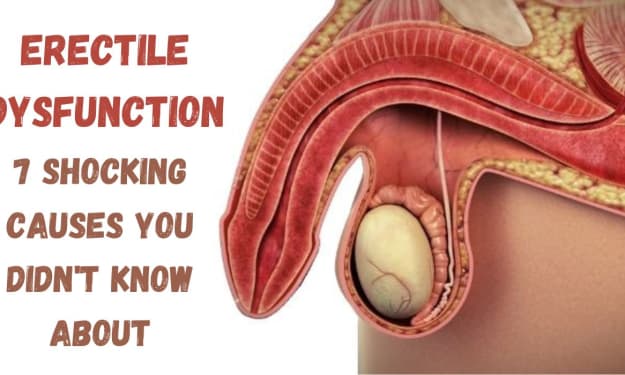Content warning
This story may contain sensitive material or discuss topics that some readers may find distressing. Reader discretion is advised. The views and opinions expressed in this story are those of the author and do not necessarily reflect the official policy or position of Vocal.
10 Easy Steps to Start Living a Zero-Waste Lifestyle Today
10 Easy Steps to Start Living a Zero-Waste Lifestyle Today

Living a zero-waste lifestyle is not only beneficial for the environment, but it can also simplify your life and save you money in the long run. By making a few simple changes to your daily habits, you can significantly reduce your waste and make a positive impact on the planet. In this article, we will discuss ten easy steps you can take to start living a zero-waste lifestyle today.
1. Refuse Single-Use Plastics
Single-use plastics are one of the biggest contributors to waste pollution. Start by refusing items like plastic bags, straws, water bottles, and take-out containers. Instead, opt for reusable alternatives such as cloth bags, stainless steel or glass water bottles, and eco-friendly food containers. By refusing single-use plastics, you will significantly reduce your waste output.
2. Embrace a Minimalist Lifestyle
Living a zero-waste lifestyle goes hand in hand with minimalism. Declutter your living space and focus on owning only the things you truly need and value. By simplifying your life, you will consume less and generate less waste. Before making a purchase, ask yourself if it is something you genuinely need or if it will end up as clutter in the future.
3. Start Composting
Food waste is a significant contributor to landfill waste and greenhouse gas emissions. Instead of throwing your food scraps in the trash, start composting them. Composting turns organic waste into nutrient-rich soil that can be used for gardening or landscaping. Even if you live in an apartment, there are small-scale composting options available, such as vermicomposting with worms.
4. Shop in Bulk and Use Reusable Containers
Buying in bulk not only saves you money but also reduces packaging waste. Look for stores that offer bulk options for items like grains, nuts, and spices. Bring your own reusable containers or bags to fill up with these items. This way, you avoid unnecessary packaging waste and only take what you need, reducing the likelihood of food waste as well.
5. Use Cloth or Reusable Bags
Plastic bags are a significant source of pollution, particularly in our oceans and waterways. Invest in a few sturdy cloth or reusable bags and keep them handy for all your shopping needs. Whether you're grocery shopping or running errands, bring your reusable bags with you. This simple habit can save hundreds of plastic bags from ending up in landfills or polluting our environment.
6. Opt for Sustainable Personal Care Products
Many personal care products, such as shampoo bottles, toothpaste tubes, and makeup containers, contribute to waste accumulation. Look for sustainable alternatives like shampoo bars, toothpaste tablets, or refillable containers. By choosing products with minimal or recyclable packaging, you can significantly reduce your bathroom waste.
7. Say No to Junk Mail
Junk mail is not only a nuisance, but it also generates a significant amount of paper waste. Take the time to unsubscribe from unwanted catalogs and promotional mailers. You can contact the companies directly or use online services that help you opt-out of junk mail. By reducing the amount of paper waste you receive, you contribute to saving trees and conserving resources.
8. Ditch Disposable Cleaning Products
Household cleaning products often come in single-use plastic bottles or containers. Swap these out for refillable or concentrated cleaning solutions. Look for brands that offer refill stations or products in bulk. Additionally, consider using reusable cleaning cloths or old t-shirts as alternatives to disposable paper towels. These small changes will reduce your waste and help keep your home clean.
9. Repair and Repurpose
Before throwing away broken items, explore the possibility of repairing them. Many appliances, electronics,
About the Creator
Enjoyed the story? Support the Creator.
Subscribe for free to receive all their stories in your feed. You could also pledge your support or give them a one-off tip, letting them know you appreciate their work.






Comments (1)
I'm Starting now